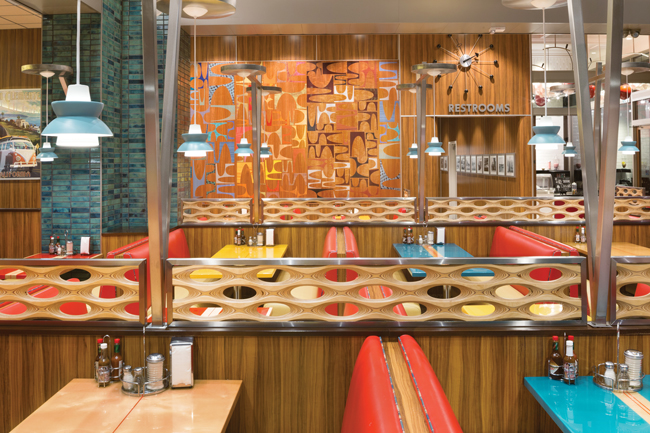Small companies are taking a big bite of the PE pie. Here's how.
Perhaps you still think private equity firms only invest in large restaurant chains, leverage them to the hilt and then escape with the cash before the Chapter 11 filing — that, in short, they're a financial Grim Reaper. Think again.
For a variety of reasons, not the least of which is piles of dry powder sitting on the sidelines, PE (private equity) firms continue to hunt for growth concepts, typically small, barely tested chains that show potential to expand at a rapid pace. "There's an enormous amount of interest in new concepts and enormous amounts of capital," declares financial advisor Jim Parish, an industry veteran who works with restaurant founders.
Indeed. Last year, Catterton Partners used its growth fund to take majority and minority stakes in Protein Bar, Bruxie, Piada Italian Street Food, Snap Kitchen and Primanti Brothers — none of which operated more than 15 units at the time of the investment. The founders of all but one — 80-year-old Primanti Brothers — remained in place.
"Private equity is looking for much smaller-sized restaurant companies," says consultant James McGehee of Results Thru Strategy, a systems specialist who helps founders prepare for investments. "You no longer have to be a 30-unit chain with a regional footprint and an EBITDA of at least $5 million."
And last fall at the Restaurant Finance and Development Conference in Las Vegas, no less than five sessions addressed financing emerging concepts. During one, panelist Blythe Jack, managing director at TSG Consumer Partners, which recently acquired a stake in My Fit Foods, said her firm "came in behind the founders," whom she dubbed "the secret sauce."
Look Beyond Bucks for Expertise
Founders usually excel at creating great cultures and motivating staff; however, they're typically adrift when it comes to thinking strategically about real estate, demographics and financials. It's not that they ignore such issues — after all, they've opened a series of successful restaurants. It's just that, for private equity firms, gut feel doesn't suffice. In fact, it's a good idea for founders to consider a PE firm's experience in the restaurant space as carefully as they do their own capital requirements.
Scott Pressly, managing director of BIP Opportunities Fund, who also spoke at the conference, noted he likes to work with founders who don't believe they have all the answers. At Tin Drum, an Asian street-food concept based in Atlanta, founder Steve Chan, who had no experience expanding restaurants, tried franchising them. Chan eventually reached out to BIP as much for guidance as for financing. After the private equity firm acquired a minority interest in September 2012, the founder began implementing systems that allowed management to monitor unit performance more closely. Last fall, Chan hired several industry veterans, including former Arby's executives to relaunch franchising.
Andy Pforzheimer, who co-founded Norwalk, Conn.-based Barcelona Wine Bar and Bartaco, told Restaurant Finance Monitor in 2012 that "writing a check was not the primary reason we ended up talking to Rosser Capital [founded by long-time restaurant investor Harold "Hal" Rosser]. The two important things were the relationship and the level of expertise." Pforzheimer, a chef, and partner Sasa Mahr-Batuz talked with several private firms before signing a deal.
Even founders with successful track records rely on the industry connections private equity firms have with former portfolio executives. "I've brought [Catterton] in to consult on key positions, like chief development officer," acknowledges Piada founder Chris Doody, co-founder of the Bravo Brio Restaurant Group, which he sold to the private equity firm that took the company public in 2010.
Doody, by the way, recently spent time visiting new concepts in Southern California with former Outback CEO Bill Allen, a Catterton ally who is said to operate an "incubator" for emerging concepts. Among the small chains they visited was sandwich-maker Mendocino Farms, which boasts average unit volumes of $2.5 million a year. "[Bill] has his own projects and works with what he thinks is hot," Doody says.
Consider Performance Metrics
Few restaurant concepts are deemed hot — at least by institutional investor standards — without high average unit volumes (AUV). "High" is relative, of course. But financial advisors and private equity executives acknowledge the AUV bar has been raised since 2007 for several reasons, not the least of which is private equity firms hedging their bets on new and untested concepts.
"The sales-per-square-foot bar is certainly higher than it used to be," says financial advisor and restaurant investor Mark Saltzgaber, citing increased labor, rent and other costs. "It's also the case that unit-economic models deteriorate over a larger unit base as they grow further from their home market."
Parish, who works with restaurant founders, warns that the rules are being rewritten in terms of unit volumes. Once upon a time, $550 per square foot was sufficient to cover overhead and turn a profit. Today, he maintains, emerging concepts need to produce $700-plus per square foot to turn heads. "Clearly, if your units are able to generate enough revenue to make efficient use of capital and people, you are in a much better position," he explains.
One PE executive at a firm that invests in emerging concepts concedes high unit volumes grab attention. Yet he insists that unit economics are what ultimately matter. He cites an IPO filing for Noodles & Company, noting the company averages $1.178 million per unit in 2,650 square feet of space. "That comes out to about $450 per square foot," says the executive, who wants to remain anonymous. "But they are extremely successful and have a great model."
What metrics suggest high productivity and, hence, generate interest from private equity? Says Saltzgaber, "I believe cash-on-cash returns and return on total investment for emerging brands need to be at least 40 percent and 20 percent, respectively, to cover the overhead required to properly support and manage high-growth rollouts and to generate real bottom-line earnings."
Clean-Up Deal Killers
Let's say your emerging brand is on-trend, produces high average unit volumes and has the aforementioned margins. Moreover, your management team is top-notch. Your need now is growth capital, which private equity can provide. But there's one more thing to consider, advises attorney Anna Graves of Pillsbury Winthrop. "You need to take a look at the investment structure you have in place with your friends and family and your angel," she says.
If you've been financing new restaurants through cash flow and bank debt, chances are you won't have a complicated balance sheet. That's something PE firms like to see. But if your current investors have individually financed separate restaurants and you don't have a roll-up provision, "you could be in deep trouble," she says. That's because PE firms do not like to discover "structural deficiencies" during the often long period of due diligence.
Other deficiencies that can kill a deal include landlord control over existing leases and off-balance-sheet items. Graves, who has untangled many such situations, notes that PE firms appreciate it when lawyers experienced with private equity deals represent the founder.
Resolve Control Issues
By the time you begin looking for a PE sponsor, you should have already resolved control issues. You'll know, for example, that once the deal is closed you won't be launching any new concepts for at least the next five years. In fact, the main reason you'll be sitting on a pile of dough is because the managing directors believe you and your team are the best in class and therefore will increase the selling price by dint of your hard work. Parish has a hard time imagining any founder raising equity capital without "sophisticated financial, training and development people on board."
Graves adds that while PE typically does not buy majority interest in emerging concepts, their terms may dictate so many rights that founders no longer have sole approval of sites or compensation. "Private equity may have going-forward approval on all leases," she says.
Doody acknowledges he didn't need to partner with Catterton, having reaped the rewards of a previous private equity sale and a subsequent IPO with Bravo Brio. "I could have financed growth myself," he acknowledges, but Piada's growth would inevitably have been slower. He wanted to roll out the budding Italian street food concept before competitors began flooding the fast-casual Italian segment. "If you have something that's scalable that you don't want to franchise but want to grow fast," he says, "then private equity is the way to go."
PE Upsides and Downsides
Securing a private equity partner isn't all champagne and caviar. Here's what you can expect once the deal is closed:
The bright side:
- Strategic advice from firm's operating partners
- Equity partners devoted to your company's success
- Increased vendor contacts
- Improved cash flow
- Opportunity to invest alongside PE firm
- Possible "second bite" upon sale of the company
The dark side:
- Dilution of founder's ownership
- Loss of control over site approval, compensation, etc.
- Timing of sale decided by PE firm
- Ongoing reporting demands



